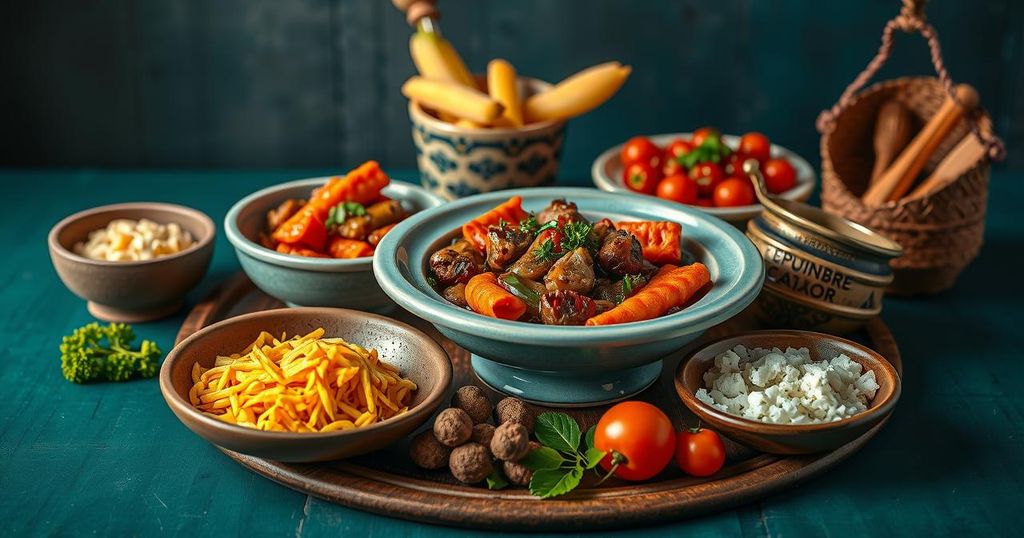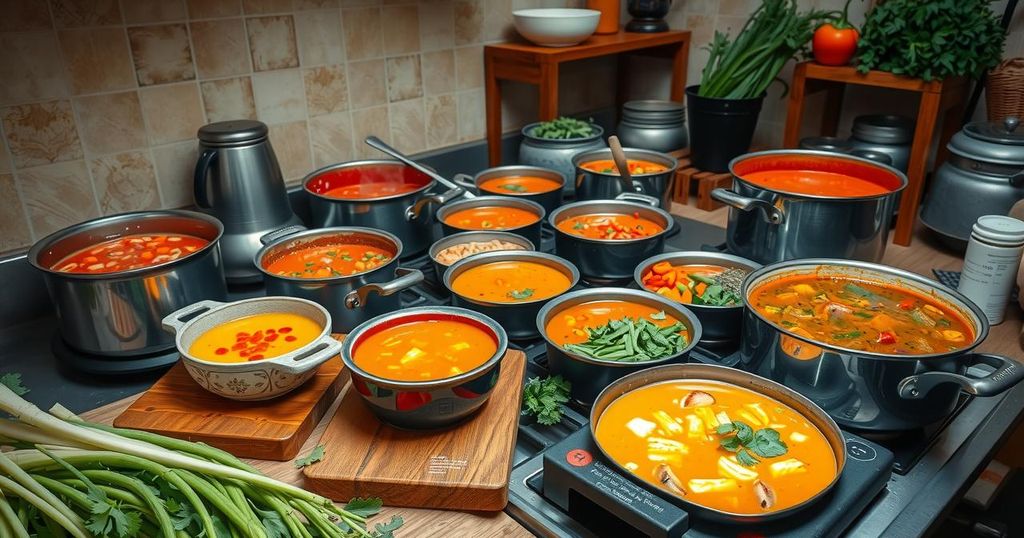Kazakh Cuisine: A Culinary Journey through Tradition and Identity
The article explores Kazakh cuisine through the lens of cultural significance, emphasizing its connection to identity and heritage. It highlights key restaurants like Auyl and Qazaq Gourmet, which showcase traditional dishes, particularly those featuring horse meat. The narrative underscores the deep bond between food and home, unveiling Kazakh culinary experiences as reflections of community, tradition, and history.
Kazakhstan’s culinary heritage is deeply intertwined with its national identity, and the recent recognition of Almaty’s Auyl restaurant as one of the world’s most beautiful eateries highlights this connection. In her insightful exploration, Aida Haidar, News Editor at The Astana Times, delves into the essence of Kazakh cuisine, emphasizing the cultural significance of its ingredients and traditional dishes. The prominence of horse meat, central to Kazakh meals, might surprise some international visitors, yet it encapsulates centuries of nomadic tradition and cultural exchange along the Great Silk Road. As one traverses Kazakhstan, the opportunity to savor local delicacies is abundant. Kazakh cuisine, with its rich flavors and simple yet hearty dishes, reflects the nation’s history and resilience. Immersing oneself in the culinary delights of Kazakhstan necessitates an open mind, particularly when confronted with the abundant use of meat in traditional fare. The socio-economic landscape of the region has historically been shaped by the harsh climate, making meat a vital resource for sustenance. Ayul, a celebrated restaurant situated at the foot of the Shymbulak mountains, exemplifies this neo-nomadic dining experience. Here, the ambiance recreates the warmth of Kazakh traditions through its round tables and meticulous interior, reminiscent of familial gatherings. Guests can relish iconic dishes such as baursak, balqaimaq, and marrow bones served with flatbread, each bite reflecting the essence of nomadic life and culinary artistry. Another culinary gem, Qazaq Gourmet in Astana, invites visitors to indulge in beshbarmak, a cherished dish made with horse meat, often served during significant occasions. It encapsulates the essence of comfort for Kazakhs, transcending mere sustenance to evoke memories of family and tradition. Additionally, exploring modern interpretations of traditional foods at establishments such as Selfie underscores Kazakhstan’s evolving culinary landscape, where chefs incorporate local ingredients into contemporary dishes. Traditional Kazakh tea, a cultural staple, symbolizes hospitality and familial connection. The experience of enjoying traditional flavors, such as ice cream inspired by Kazakh tea, offers a unique perspective on the nation’s culinary identity. Aida Haidar aptly concludes that the true essence of Kazakh cuisine is best appreciated in an authentic setting, ideally within the warmth of a local home, where grandmotherly love transforms simple ingredients into cherished memories. Kazakh food embodies the spirit of home and connection—an affirmation that food is not merely nourishment but a communion across generations. As visitors seek to understand Kazakh culture, they are encouraged to engage with local traditions and family-oriented meals, thus gaining deeper insights into the heart of this majestic country.
Kazakh cuisine represents not only a collection of dishes but also a historical beacon of the nation’s nomadic and agricultural traditions. With horse meat serving as a culinary cornerstone, Kazakh food is emblematic of the resourceful ways of life shaped by the harsh environmental conditions. As Kazakhstan embraces modernity while honoring its rich past, local establishments are increasingly focusing on culinary heritage, presenting dishes that celebrate local ingredients and cultural significance. Amidst these dynamics, restaurants like Auyl and Qazaq Gourmet are pivotal in showcasing this evolution, while the vibrant exploration of food among the Kazakh people reveals a profound connection to their roots and communal values.
In conclusion, Kazakh cuisine is a vibrant representation of the nation’s identity, steeped in history and cultural significance. From traditional dishes highlighting horse meat to modern interpretations that celebrate local ingredients, the culinary landscape of Kazakhstan is dynamic and inviting. Embracing the deep-rooted traditions of hospitality and familial bonds, one discovers that food serves as a bridge to understanding the Kazakh way of life. Visitors are encouraged to explore local flavors and cherish the experiences that evoke a sense of home, enveloped in the warmth and richness of Kazakh culture.
Original Source: astanatimes.com




Post Comment